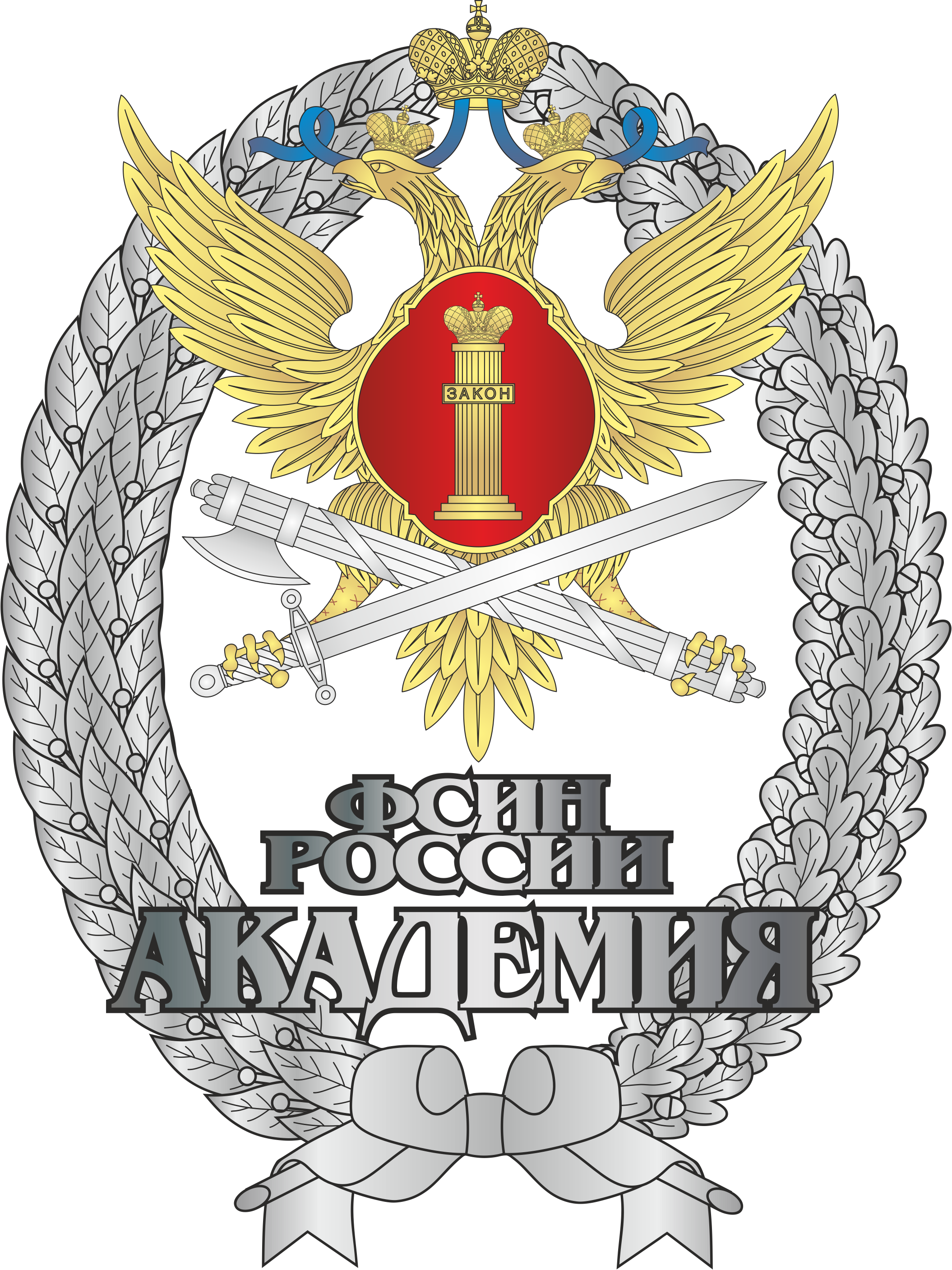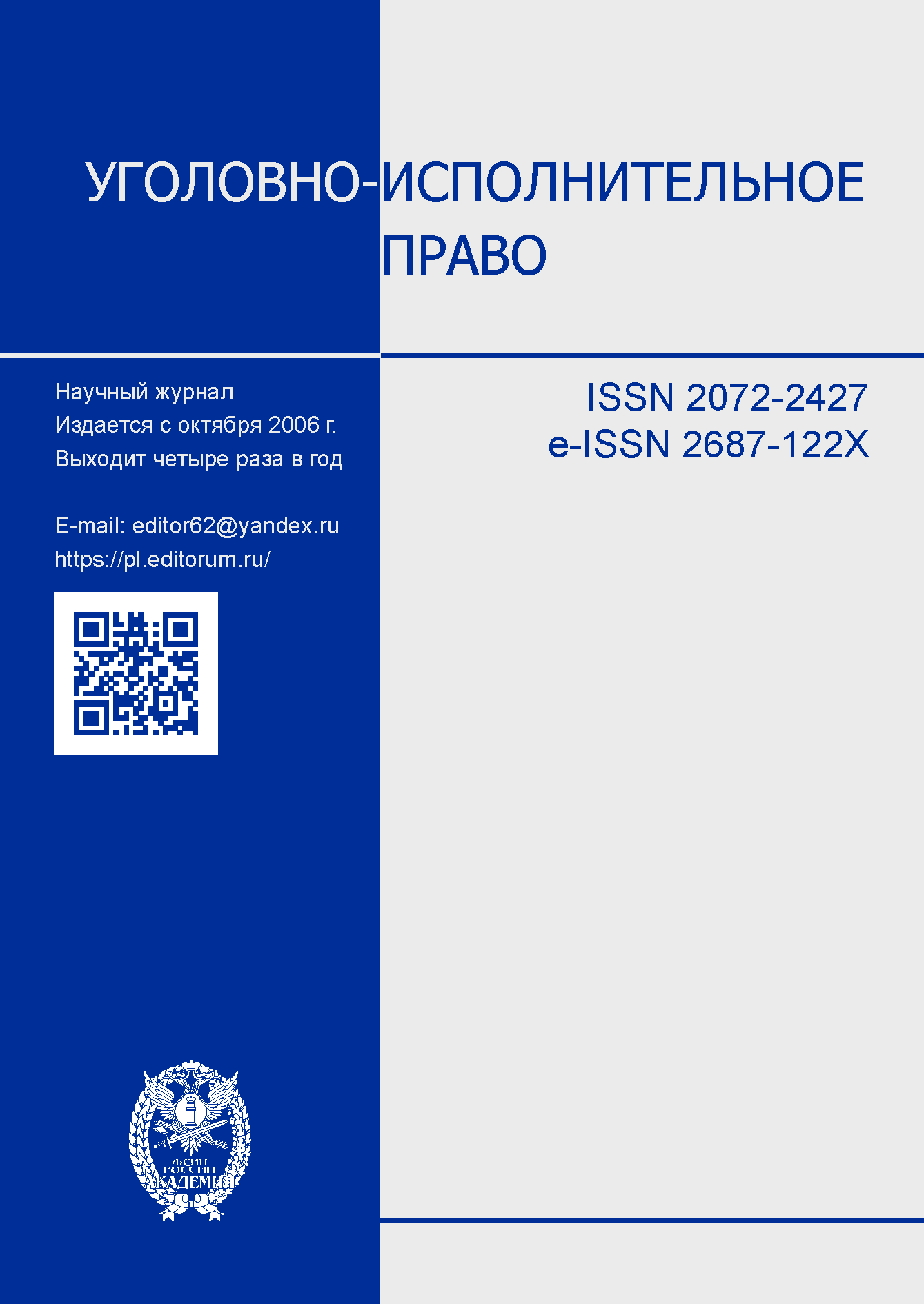Ryazan', Russian Federation
UDC 343.85
Taking into account the shortcomings of Russian penal and other legislation, as well as the results of a comparative analysis with foreign regulatory legal acts, the article highlights the possibilities of improving the effectiveness of countering crimes with signs of extremism committed by convicts, suspects and accused: isolation of those convicted of crimes of an extremist or terrorist nature from the bulk of the detained persons and separation from each other, depending on their individual characteristics, both in a separate specialized institution of a combined type in Russia and in the corresponding local areas of such institutions; the emphasized application of a complex of regime, operational, educational, psychological and other measures to them, and also public impact; unification of the practice of correctional and preventive work with the category of convicts in question and their early release from serving their sentences.
joint type institutions, counteraction to extremist crimes, correction of convicts, prevention of crimes and other offenses, parole, preventive accounting, religious organizations
1. Sinelshchikov, Yu. P. 2024, ‘The law on joint type institutions: a parliamentarian’s view’, Penal law, vol. 19(1-4), iss. 3, pp. 368–374.
2. Petryanin, A. V., Bogomolov, S. Yu. & Neganov, D. A. 2024, ‘Hybrid warfare as a modern, destructive phenomenon’, Penal Law, vol. 19(1–4), iss. 2, pp. 300–308.
3. Skiba, A. P. & Kokiev, A. J. 2024, ‘“Standard” penal legislation as the legal basis for the execution of punishment in the absence of extraordinary circumstances: problem statement’, Bulletin of the Kuzbass Institute, iss. 4(61), pp. 56–65.
4. Kirillov, M. A., Petryanin, A. V. & Pshenichnov, I. M. 2023, ‘Extremism in institutions and bodies executing punishment: current state, directions for optimizing counteraction’, Legal science and practice: Bulletin of the Nizhny Novgorod Academy of the Ministry of Internal Affairs of Russia, iss. 4(64), pp. 115–120.
5. Petryanin, A. V. 2013, ‘Penological features of the prevention of extremist crimes’, Legal science and practice: Bulletin of the Nizhny Novgorod Academy of the Ministry of Internal Affairs of Russia, iss. 23, pp. 101–106.
6. Krymov, A. A. & Skiba, A. P. (eds) 2022, Penal legislation in the conditions of a natural disaster, the imposition of an emergency or martial law: monograph, 4th edn, Criminological Library, Moscow.
7. Skiba, A. P. (ed.) 2023, Public-private partnership in the penitentiary sector: monograph, Academy of the FPS of Russia, Ryazan.
8. Skiba, A. P. & Skomorokh, O. A. 2024, ‘Organizational and legal problems of countering radical manifestations of those sentenced to imprisonment in the context of ensuring freedom of conscience and freedom of religion’, Bulletin of the University of the Prosecutor’s Office of the Russian Federation, iss. 1(99), pp. 62–70.
9. Grushin, F. V. 2021, ‘Institute of parole from serving a sentence: some aspects of functioning’, Penitentiary law: legal theory and law enforcement practice, iss. 1(27), pp. 59–63.
10. Davydova, I. A. 2023, ‘Disciplinary responsibility of convicts: directions for improving Russian penal legislation based on foreign experience’, Penal law, vol. 18(1–4), iss. 4, pp. 523–534.
11. Dikaeva, E. S. 2024, Internal affairs bodies in the crime prevention system of those released on parole from serving sentences of imprisonment: PhD thesis (Law), St. Petersburg.
12. Metlin, D. G. 2022, ‘The problem of the rational application of penalties to convicts serving imprisonment in domestic penitentiary institutions’, Penal law, vol. 17(1–4), iss. 2, pp. 214–220.
13. Urazbaev, R. Sh. & Barabanova, S. V. 2018, ‘Contradiction of the grounds for parole to the purposes of punishment established in part 2 of Article 43 of the Criminal Code of the Russian Federation’, Bulletin of the Far Eastern Law Institute of the Ministry of Internal Affairs of Russia, iss. 1(42), pp. 73–79.
14. Kirillov, M. A., Petryanin, A. V. & Savelyev, V. V. 2019, ‘Implementation of the principle of differentiation of punishment in the norms of the penal legislation of the Russian Federation’, Legal science and practice: Bulletin of the Nizhny Novgorod Academy of the Ministry of Internal Affairs of Russia, iss. 4(48), pp. 145–150.
15. Melentyev, M. P., Struchkov, N. A. & Shmarov, I. V. (eds) 1987, Soviet correctional labor law. General part: textbook, Ryazan.
16. Teplyashin, P. V. & Teplyashina, E. A. 2019, ‘Execution of imprisonment in relation to elderly convicts: prospects for expanding the implementation of the principle of differentiation’, Bulletin of the Kuzbass Institute, iss. 3(40), pp. 87–96.











